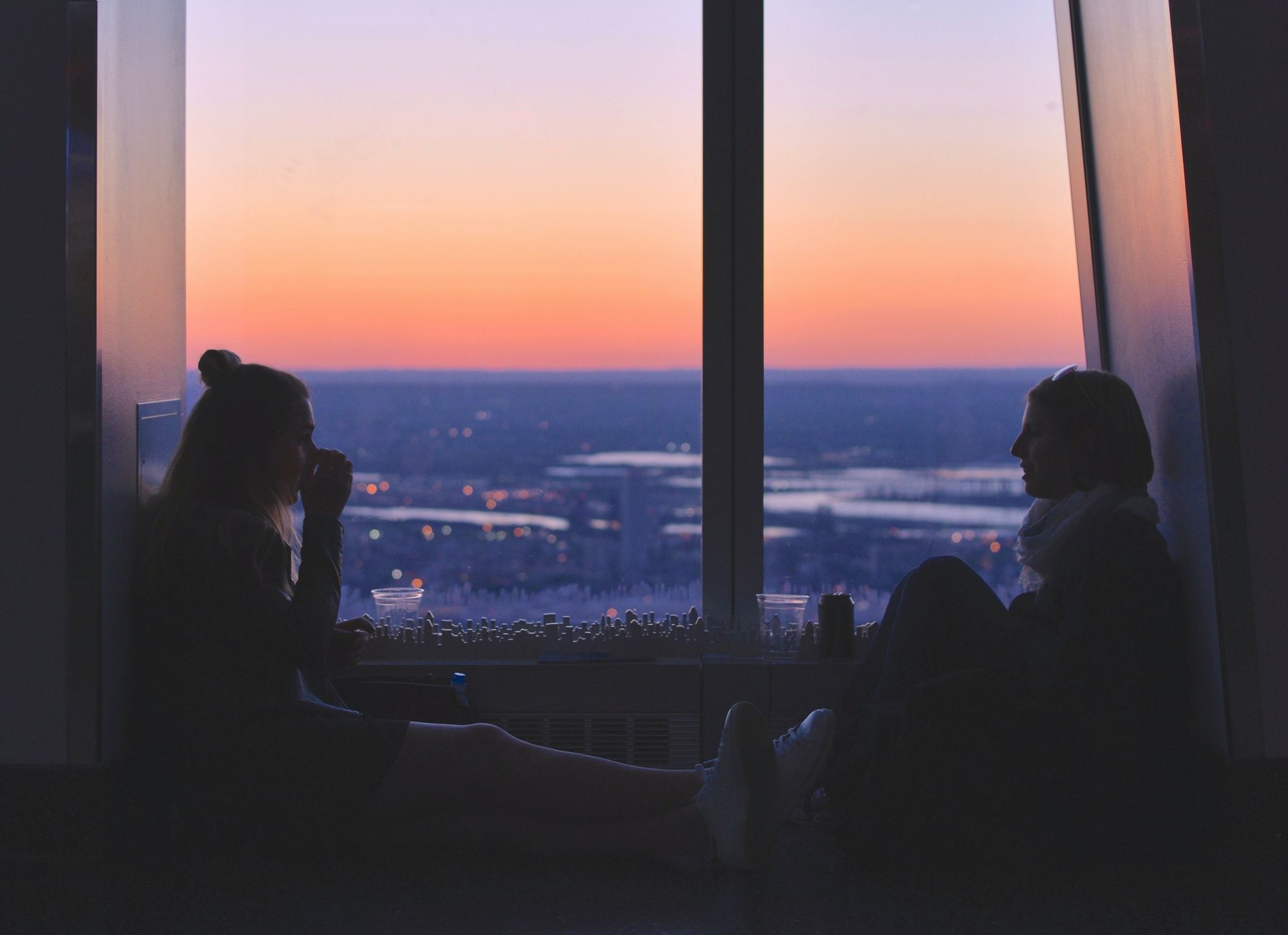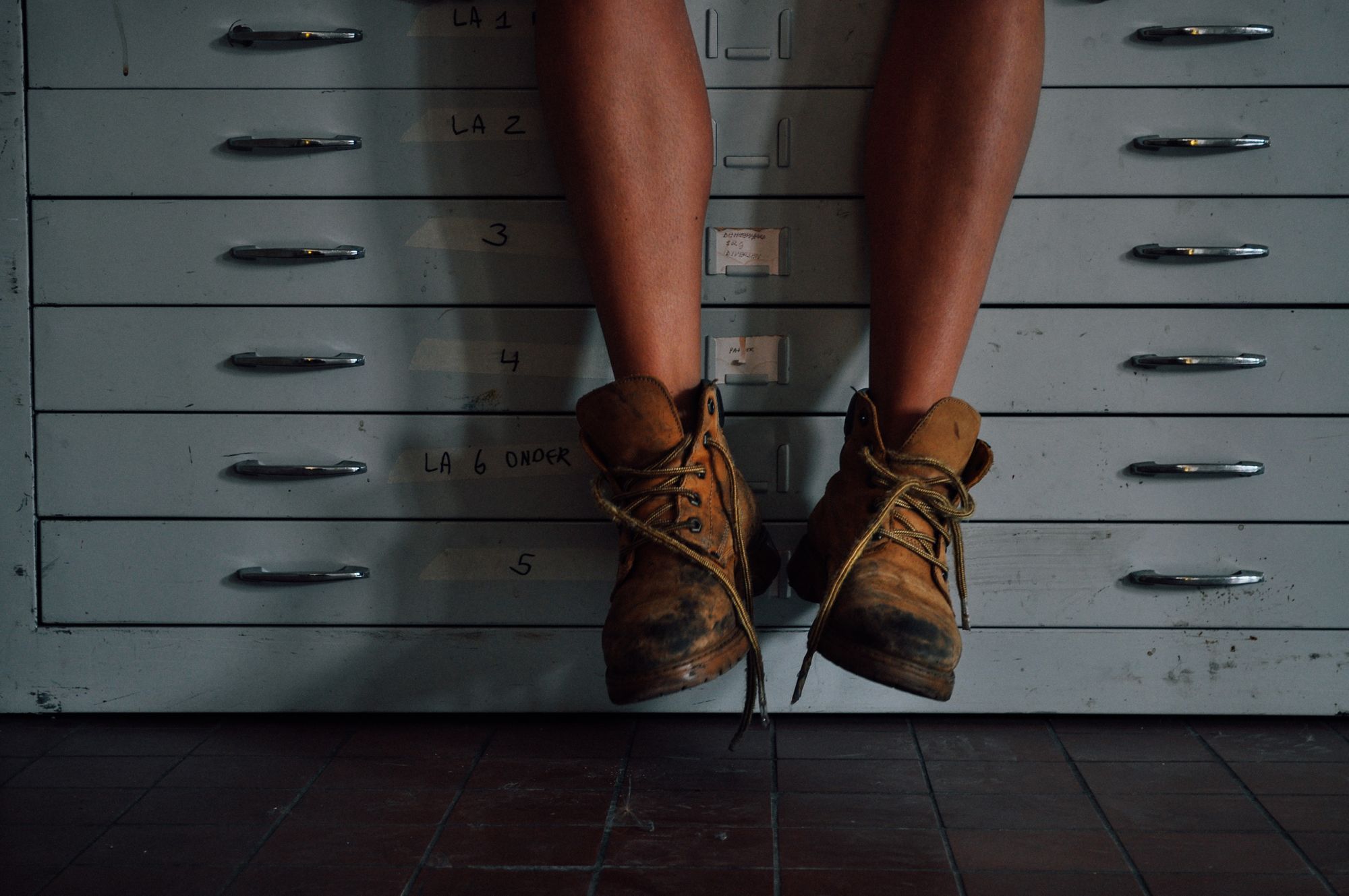"It's as if you like being sad", "can't you think of anything other than the morbid stuff", "how can such a beautiful sunny day make you sad", "depression is for the weak-minded" (whatever that means), "is it your time of the month?", "just snap out of it" – I could go on and on about the "advice" I have received from people who deem themselves, experts of the human psyche because that one person dumped them in sixth grade.
Ironically, I was too depressed at the time to react to these infuriating remarks.
Depression Isn’t Just Feeling Sad
Let's get one confusion sorted. Despite what some people may tell you, depression ISN'T sadness. It's a disease that is more common than people will have you would believe.
It can happen to anyone. An eight-year-old child from a seemingly happy and normal family. A teenager who feels out of place. A successful twenty-something-year-old. A renowned business executive, actor, singer, homemaker, entrepreneur, mother, or father.
It is a mood disorder that takes away one's ability to feel happy, excited, and positive. You may even describe it as a feeling of sadness, desolation, loneliness, and lethargy.
If you are here because you have been feeling depressed, know that it's not your fault.
While this mental health disorder can affect your appetite, interest in everyday activities, and social life, external events need not trigger a depressive episode.
If a person is prone to depressive episodes, they may react differently to trauma or sad incidents. However, an emotional shock may not always be necessary to trigger a depressive episode.
Depression Is a Silent Assassin
For years, I have struggled with the many faces of depression – inexplicable dysphoria, sudden lethargy, the inability to concentrate on conversations, forgetting every day and simple tasks, unprovoked outbursts, and more. Getting out of bed was difficult because life had suddenly lost its meaning, and I came to believe that no one really cared.
Yes. It has cost friendships and relationships. It cost hobbies, passions, and career opportunities.
Only when I got the help I needed my perspective began to shift. I realized that some people do care, and they have been there all along.
If you are going through something similar, know that this is not the end of the road. There’s hope.
However, first, you need to do something for yourself. Shut out the voices that spew the unwanted advice. Unless the information or guidance is coming from your therapist, psychological counselor, or psychiatrist, you don't have to listen.

What Do You Say When You Are Depressed?
Next, let's find the answer of what to say to someone when you are depressed.
If you have visited a psychiatrist or psychologist, you may have a clinical diagnosis of depression (any one or a combination of the following) –
- Premenstrual dysphoric disorder
- Major depressive disorder
- Persistent depression
- Bipolar personality disorder (BPD)
- Depressive psychosis
- Perinatal or postpartum depression
- Seasonal (affective) depression
- Situational depression
- Atypical depression
When your close friend or family member asks you, "what's wrong," you can boldly state your diagnosis. There's no shame in being depressed like there's no shame in being diabetic!
Depression Is NOT Your Fault
The feelings of guilt, hopelessness, and worthlessness that accompany depression often make it difficult for the person to talk about their mental and emotional state to even their BFF.
However, if you are depressed, and especially if you are on medication, you should think about mentioning it to your closest friends and immediate family.
Talk about mental health with them. You never know, you may unknowingly help a friend in need.
We know how hard it can be to take criticism, so be very clear about it if you are planning on having a heart-to-heart with anyone close to you. If they care about you, they'll understand.
Stay away from the toxic people in your life who say or make you feel that you are not putting in enough effort to be happy. They may include your co-workers, neighbors, some of your friends, and even some of your family members.

You Don’t Owe the World an Explanation
When you are depressed, you shouldn’t have to explain the why’s and how’s of depression to people.
To date, it is a leading cause of disability around the world. There are enough credible sources for them to find out about the different types of depressive disorders that plague over 264 million people across the globe!
Honestly, it’s ridiculous. You have a disorder. You have the right to privacy, in case you don’t want to share your diagnosis and feelings with someone. It’s absolutely necessary to set boundaries with someone who’s not close to you.
In an ideal world, depression wouldn't be any different from high blood pressure, polycystic ovarian syndrome (PCOS), or diabetes. Sadly, we don't live in an ideal world. So, we have to deal with the nosy parkers at school or office and even in the neighborhood.
How to Respond To “Are You OK?”
When an acquaintance asks you, "are you OK?" You aren't obliged to open up about your struggles.
It's hard to put on a smile and say, "I'm doing great. How about you?" on the less shiny days. However, you also need to understand that in most cases, "how are you doing?" or "are you alright?" is just an automatic response like "bless you" after a sneeze.
If your best friend, significant other, parents, or therapist asks you, "are you alright?" that's the time to open up. It can be laborious to find words for how you are feeling.
So you can take an alternate approach. Take your time, paint, or sketch whatever comes to mind. Write poetry or prose. Your creations can precisely represent how you are feeling.
You can make a list of things that are bothering you most these days, thoughts that keep circling in your head, anxieties that keep you up at night, or incidents that have pushed you to the darker corners of your mind.

You’re Not OK, and That’s OK
Depression is not just a phase. It is not a stigma or taboo.
It is your mental health calling for some TLC. It’s your mind’s way of asking for self-care.
Yes, a lot of people have benefited from meditation, mindfulness, yoga, and sports. Some even stand by eating healthy and listening to inspirational music to boost mental health.
Sadly, these don’t work for everyone. If you have been struggling with mental health issues for over a year, simply changing your lifestyle might not help.
As we have mentioned before, it is just like any other disease. And like any other disease, it requires treatment.
Depression changes people. It changes how you view the world and the people around you.
When feeling the blues, take a deep breath and say to yourself, "I'm depressed, but that too is alright."
“I Need Help”
Unless you are ready to accept that your blues are more than a passing phase, it will be difficult for you to get the right help. “I need help”- 3 simple words can make your future brighter and better.
When you have been feeling low or unlike yourself for over two months, it is vital that you see an expert. We can understand how difficult it must be to be pro-active right now.
So, you can ask a friend's help to look for an experienced and reliable psychological counselor or cognitive behavioral therapist in your area.
Sometimes, adults require the help of a psychoanalyst. You may need psychoanalysis too if your depression and anxiety have been chronic (long-term) and recurring.
It is possible to beat depression, no matter how dark and gloomy life seems right now.


